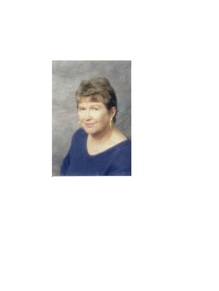|
This Wednesday for our Writer's Spotlight we are fortunate to have a guest post by amazing author, Shirley Kennedy. Her books are wildly read and highly recommended. Shirley is writing today about the importance of research and getting it right. If you want to see more about Shirley Kennedy, check out her website at: www.shirleykennedy.com.  A Writer’s Adventures in Researchland, The Good, the Bad, and the Very Annoying by Shirley Kennedy I once knew a writer named Glenn who didn’t believe in research. He was writing a fabulous men’s adventure novel which, style-wise, rivaled Clive Cussler, Tom Clancy, and throw in a little Mickey Spillane. Just one little thing: Glen’s hero landed at generic airports throughout the world, stayed at generic hotels, dined on generic food at generic restaurants. No detailed descriptions, ever. Surprise, surprise. Glenn never got published. Of course, a good writer must do research. But how much is too much? Authors must tread a fine line between nothing at all to long, boring paragraphs of description which scream “Skip me!” Equally annoying are authors who did the research and feel they must cram every factoid they discovered into the story. “Without warning, Snerdly pulled his Ruger SR9c compact pistol from his pocket—a menacing weapon weighing 23.40 ounces, overall length of 6.88 inches, with a standard magazine that could hold ten rounds…” E’nuff said. Get it right or else! My earlier books were all Regency romances, a genre wherein the author enters the treacherous world of Regency England at her peril. Get every detail correct or a legion of dedicated fans will let you know YOU MADE A MISTAKE. To this day, my one-and-only horrendous slipup is on display for the world to see. See Three Wishes for Miss Winthrop on Amazon. Among the reviews are two entitled, “A Great Story, slight Marred by Error,” and (yikes!) “A hole you could drive a truck through.” These sharp-eyed reviewers were, much to my dismay, correct. My hero, John Weston, Lord Granville, would not have remained a member of the House of Commons after his father died. Instead, he would have then belonged to The House of Lords. After all my in-depth research, how could I have made such a blunder? How could my editor have let it slip by? (Palm slapped to forehead here.) At least I was able to correct my error in the e-book edition. If you look in the “Comments”section under the reviews you will see my very humble apology and assurances such an atrocity will never happen again. Back in the day, a diligent writer spent hours in the local library pouring over rows of card catalogs. Usually made of sturdy oak, these catalogs consisted of long, narrow drawers filled with a separate card for every book in the library. We hauled these heavy drawers to a table, thumbed through hundreds—thousands! of cards, copied down long, intricate numbers from the Dewey Decimal System, spent more hours combing the stacks for the actual books. Now computers save us countless hours of work. Not all answers can be found in a book. That’s why I love the Internet and enjoy using it. In one of my Regency romances, my heroine was an avid bird watcher. (Off topic note: Don’t laugh. All heroines should have some kind of special interest—not easy back when women didn’t do much except marry and have children.) What kind of bird would my heroine see in the woods outside of York, England in 1815? I went on-line and found The York Ornithological Club. Its president, a friendly professor, went out of his way to describe birds that lived in the York area during Regency times. I ended up using a Yellowbird—easy to describe because that nice man even sent me a picture. A lovely experience. Sometimes both books and the Internet are not enough. For my paranormal romance, Deadly Gamble, I had to conduct in-person interviews with casino employees in order to know what really goes on behind the scenes. Since my story goes back in time, via the Internet I discovered the Old Spanish Trail cut right through Las Vegas before it was even a town. Back then, it was all of three springs called ‘The Meadows’, or in Spanish, ‘Las Vegas.’ You could not drown in these springs! Even if you wanted to! Bubbling cauldrons at the bottom would keep you afloat—and yes, I could not resist such a fascinating factoid. It’s in the book. Somewhere there must be a graveyard for old card catalogs, typewriters, carbon paper, and ink erasers. Some things never change, though. One way or another, authors must still do their research, or perish career-wise, like poor old Glenn. Comments are closed.
|